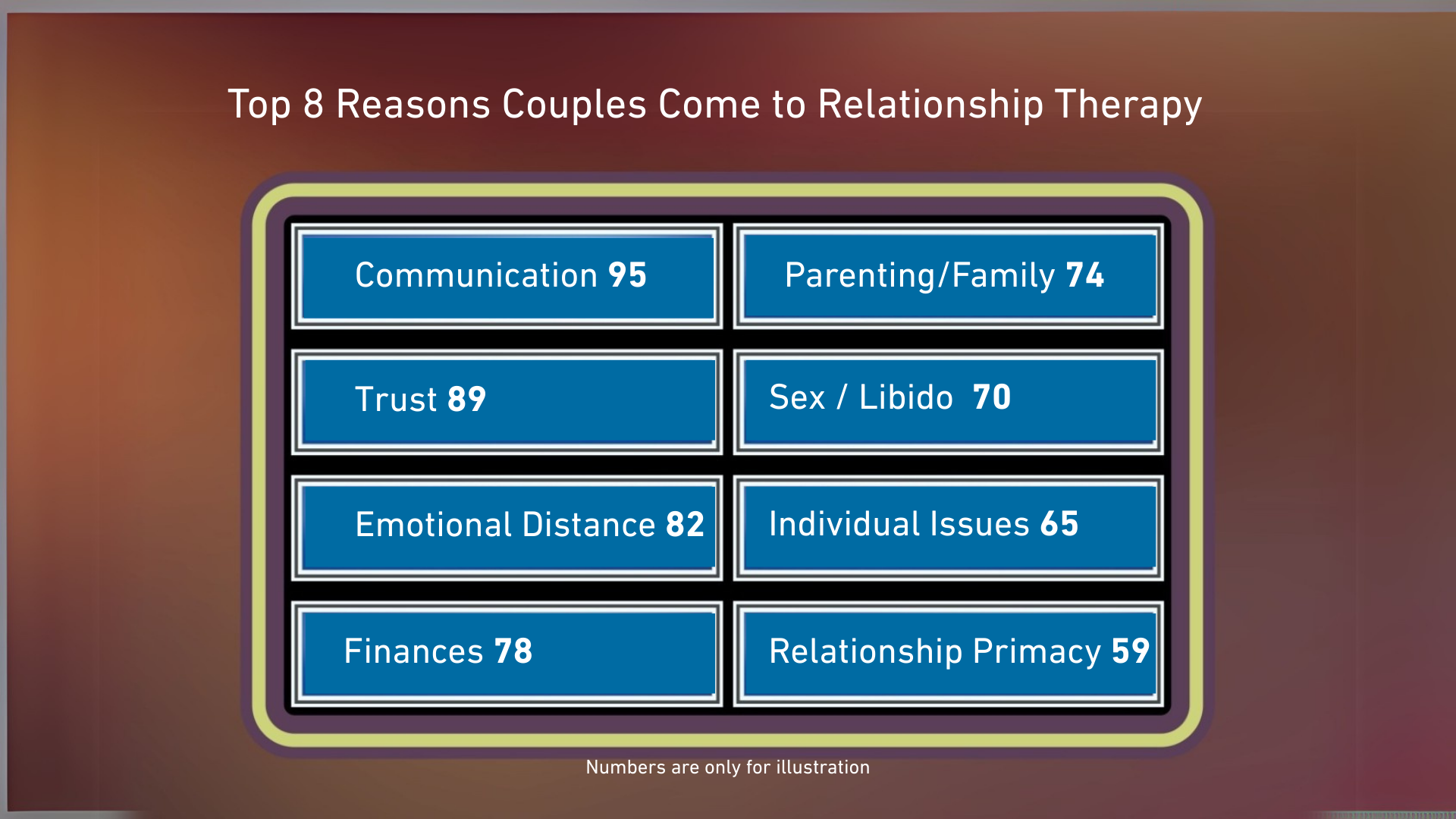When Every Talk Turns into a Ticking Time Bomb
It starts with a small comment: "You left the dishes again." What follows isn’t a solution, but a storm. Sound familiar? For many couples, minor issues quickly escalate into full-blown arguments. What if you could break that cycle?
This article explores practical, research-backed strategies to turn conflict into connection. You'll learn how to identify destructive patterns, replace them with healthy habits, and communicate in a way that leads to resolution, not resentment.
If you're stuck in a loop of bickering or emotional distance, these tools will help you transform fights into productive discussions and grow your relationship from a place of trust, not tension.
Why Couples Fight: It’s Not About the Dishes
Here’s the truth: most fights aren’t about logistics. They’re about needs, fears, and emotional triggers that lie beneath the surface.
-
The dirty dishes aren't about cleaning; they're about feeling unseen or unappreciated.
-
The "you never listen" complaint isn't about noise levels; it's about longing for emotional connection.
Understanding what’s really at stake helps you shift the conversation from defensiveness to vulnerability. And that’s where real change happens.
The Gottman Institute's 4 Horsemen: The Enemies of Connection
Drs. John and Julie Gottman, world-renowned relationship researchers, identified four behaviours that predict divorce with over 90% accuracy. They dubbed them the "Four Horsemen of the Apocalypse."
1. Criticism
Attacking your partner's character instead of focusing on a specific behaviour.
Example: "You're so selfish."
Healthy alternative: Use "I" statements.
Try this: "I feel overwhelmed when I’m managing the chores alone."
2. Contempt
Mocking, eye-rolling, sarcasm, and disrespect. This is the most dangerous horseman.
Why it’s toxic: Contempt shows up when one partner feels morally superior. It erodes trust and love faster than any other behaviour.
Healthy alternative: Build a culture of appreciation.
Try this: "I really appreciated you making dinner last night. It helped me so much."
3. Defensiveness
Playing the victim or counterattacking instead of owning your role in the conflict.
Healthy alternative: Take responsibility, even for a small part.
Try this: "You're right, I could have communicated that more clearly."
4. Stonewalling
Shutting down, withdrawing, or walking away mid-conversation.
Why it happens: Often a response to emotional overwhelm.
Healthy alternative: Take a 20-minute break and return to the conversation with a calmer mindset.
Citation: Learn more from The Gottman Institute
EFT: Attachment Theory in Action
Emotionally Focused Therapy (EFT) is one of the most effective approaches to couples therapy. It’s grounded in attachment theory, which says that we all have a deep need for emotional safety and connection in our closest relationships.
When couples fight, what’s often happening is a rupture in emotional attachment. EFT helps couples move from:
-
Reactivity → Vulnerability
-
Accusations → Needs
-
Distancing → Reaching
EFT-based techniques help couples share their real fears and longings, rather than staying stuck in surface-level arguments.
Citation: Learn more about Emotionally Focused Therapy from the International Centre for Excellence in EFT
From Fighting to Understanding: Practical Conflict Resolution Strategies
Here are proven strategies you can use to shift your dynamic from fighting to discussing:
1. Start with a Soft Start-Up
According to the Gottmans, 96% of the time, the tone of the first three minutes of a conversation predicts how it will end.
Instead of: "You never help me with anything!"
Try: "Hey, can we talk about something that’s been on my mind?"
2. Pause the Pattern
When you notice your heart racing or your partner withdrawing, name it. "Hey, I think we’re slipping into that old cycle again. Can we pause for a moment?"
3. Focus on Needs, Not Blame
Instead of pointing fingers, get curious about what’s underneath the emotion.
Say: "I think what I really need right now is to feel supported."
4. Schedule Conflict Check-Ins
Have a weekly 20-minute "clear-the-air" meeting. You’ll be amazed how much tension it relieves when there’s a regular outlet for talking through issues.
5. Repair in Real-Time
When things get heated, a small repair gesture can change everything. This might be a touch on the hand, a quick joke to break the tension, or saying: "Can we restart this conversation?"
6. Learn Each Other's Triggers
Explore what experiences from childhood, past relationships, or family culture shape your partner's responses. When you understand the root of a trigger, you’re less likely to take it personally.
Conflict Can Be a Doorway to Deeper Connection
Here’s the thing no one tells you: Healthy couples still fight. What makes them different is how they repair and reconnect. Conflict isn’t the enemy. Avoiding it, or mishandling it, is.
When you learn to fight with respect and vulnerability, you open the door to greater understanding, stronger trust, and a more secure bond.
And yes, this is a learnable skill.
Want to Stop the Fights and Start Communicating?
Take the next step: Our Escaping Fight Club self-paced course is designed to help couples break the cycle of destructive fighting and learn proven communication strategies.
-
Identify your conflict patterns
-
Learn to de-escalate and reconnect
-
Build lasting emotional safety
Prefer personalised support?
Meet with one of our expert Relate Team therapists for tailored help in navigating conflict and communication.
Final Takeaway: It’s Not About Never Fighting—It’s About Fighting Better
Conflict is inevitable in any marriage. But with the right tools, you can transform those moments of tension into opportunities for growth. Use the strategies in this guide to start turning fights into discussions that bring you closer, not tear you apart.
And if you're ready to take a structured, guided path to change?
Start Escaping Fight Club or book a session with a Relate therapist. A better relationship begins with a better conversation.






